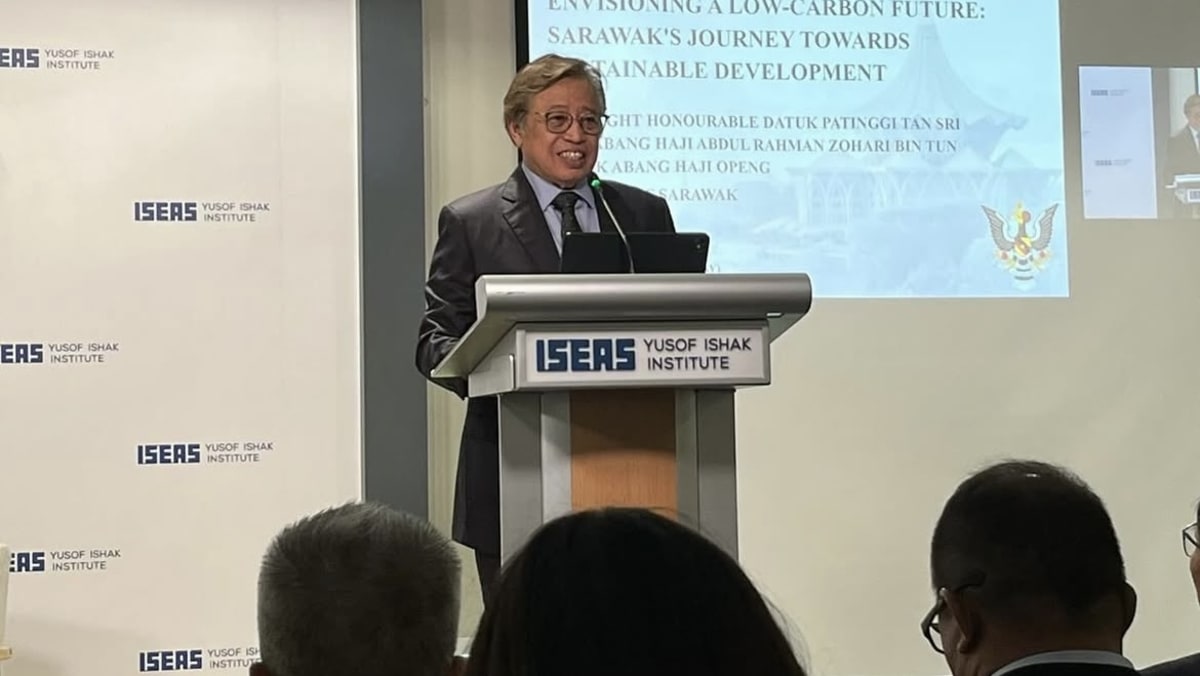Asia
Petronas dispute: Sarawak ‘must have a say’ on production of oil and gas within state, says Premier Abang Johari

Sarawak’s Assertion of Control Over Oil and Gas Resources
In recent days, Sarawak’s Premier, Abang Johari Openg, has reaffirmed the state’s authority to make decisions regarding the distribution of oil and gas resources within its territory. This statement comes amid ongoing discussions about the role of the national oil corporation, Petronas, in managing Malaysia’s energy reserves. While Sarawak acknowledges the federal government’s Petroleum Development Act (PDA) 1974, which grants Petronas exclusive control over the exploration and distribution of oil and gas resources across the country, Abang Johari emphasized Sarawak’s desire to have a greater say in how its resources are managed.
The Premier highlighted Sarawak’s decision to establish Petroleum Sarawak Berhad (Petros) as a strategic move to assert the state’s influence in the energy sector. Petros is intended to work alongside Petronas, ensuring that Sarawak has a role in decision-making processes, particularly in the distribution of gas. In a meeting with Malaysian Prime Minister Anwar Ibrahim on January 7, it was agreed that Petros would act as the gas aggregator for Sarawak. This means that while Petronas retains its authority under the PDA, Sarawak will have oversight over the distribution of gas within its borders.
However, a recent development has introduced a layer of complexity to this arrangement. On February 4, Minister in the Prime Minister’s Department (Law and Institutional Reform), Azalina Othman Said, revealed that Petronas’ recognition of Petros as Sarawak’s gas aggregator does not extend to liquefied natural gas (LNG). This exclusion has been met with frustration from Sarawak’s leadership, as it represents a significant limitation on the state’s ability to fully control its natural resources.
The exclusion of LNG from Petros’ responsibilities is seen as a major setback for Sarawak’s efforts to gain greater autonomy over its energy resources. LNG is a critical component of the global energy trade, and Sarawak’s inability to manage its LNG resources undermines its goal of becoming a key player in the regional energy market. Premier Abang Johari has expressed his dissatisfaction with this decision and has called on Deputy Prime Minister Fadillah Yusof to address the issue at the federal level.
This tension underscores the broader debate over resource management in Malaysia, particularly between the federal government and the East Malaysian states of Sarawak and Sabah. Sarawak has long argued that it should have greater control over its natural resources, given their economic importance to the state. The establishment of Petros and the recognition of its role as a gas aggregator were seen as steps forward in this regard, but the exclusion of LNG has raised concerns about the federal government’s commitment to decentralizing power.
Looking ahead, Sarawak’s push for greater control over its oil and gas resources is likely to remain a contentious issue. While the state acknowledges the authority of the PDA and the role of Petronas, it is clear that Sarawak’s leadership is determined to assert its influence in the energy sector. The outcome of this effort will have significant implications not only for Sarawak but also for the broader balance of power between the federal government and Malaysia’s resource-rich states.
-
Money3 days ago
Consumer Financial Protection Bureau Adds Error Message To Home Page
-
Australia24 hours ago
Tropical Cyclone Zelia intensifies to category 2 storm
-
Money2 days ago
Winning Content Strategies For Wealth Managers
-
Asia1 day ago
What you need to know about 2024 YR4, the asteroid that could hit Earth in about eight years’ time
-
Entertainment16 hours ago
Prince Harry and Meghan Markle’s Best Moments and Photos From the 2025 Invictus Games
-
Australia11 hours ago
Tropical Cyclone Zelia intensifies to category five system off Pilbara coast
-
Politics1 day ago
Dozens of religious groups sue to stop Trump admin from arresting migrants in places of worship
-
Entertainment3 days ago
Every Celebrity Who Attended the 2025 Super Bowl: A Guide to the A-Listers at the Big Game